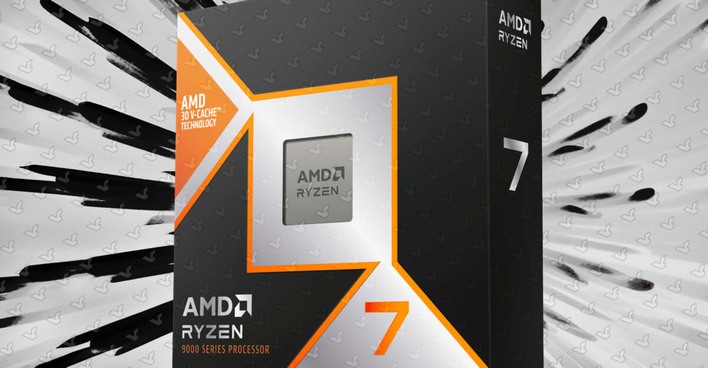AMD Ryzen 7 9800X3D Retail Leak Teases Upgraded 2nd Gen 3D V-Cache
AMD already told us that at least one of the new Zen 5 chips with 3D V-Cache will be coming on November 7th, but leaks have painted a picture showing just one CPU: the Ryzen 7 9800X3D. That's probably fine, as sales have showed that the Ryzen 7 7800X3D is basically the main Zen 4 CPU that everyone really wants—further fuel for the "gaming performance is the only thing that matters to DIY system builders" argument.

The fellows over at Videocardz have leaked the above image which clearly shows the packaging for a Ryzen 9000 CPU from the "7" tier with 3D V-Cache. This image matches an earlier leak from AMD China, yet is much higher resolution. There's really not much to garner from this photo aside from the fact that it seemingly confirms that AMD will be launching a Ryzen 7 X3D CPU real soon now.
Arguably the more interesting news is this tweet from known AMD insider Hoang Anh Phu, who says that AMD is referring to the vertically stacked cache on the new part as "2nd Generation 3D V-Cache Technology." Hoang points out that this sets it apart from the Zen 3 and Zen 4 CPUs with 3D V-Cache, which were presumably "1st Generation". Note that neither of these terminologies has appeared anywhere officially yet, though.
What does "2nd Generation 3D V-Cache" imply? It's not a higher cache capacity, unless the Maxsun leak was completely wrong. However, that leak seemed to imply that the Ryzen 7 9800X3D will run very similar clock rates to the Ryzen 7 9700X. It's possible that improved thermal dissipation and reduced sensitivity to high temperatures and high voltages—allowing the CPU to boost higher—is what justifies the "2nd Gen" moniker.



